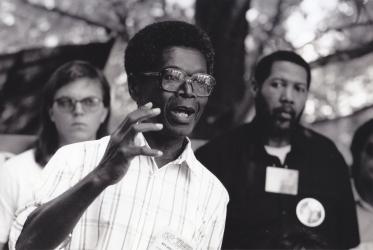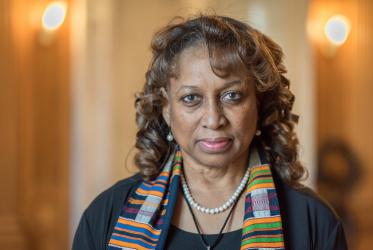Evangelical Congregational Church in Angola
(Igreja Evangelica Congregacional em Angola)
The church unites the work originally begun by the American Board of Foreign Missions (now UCC, USA) in 1880 and the mission of the Congregational Church of Canada (now the UCC, Canada) in 1886. In 1940 a theological school was opened, and the graduation of several pastors resulted in a significant growth and development in the life of the church. During the period from 1957 to the independence of Angola in 1975, the work of the two North American churches was united and the new church was called the Council of Evangelical Churches in Central Angola. Following independence and the formation of a national Council of Churches the name was changed to the Evangelical Congregational Church in Angola.
Due to original missionary agreements the IECA had strong membership in certain regions. In addition to 60 primary and three secondary schools, it had the most highly developed medical programme in the territory and an extensive rural public health service. During the civil war the infrastructure in the rural areas was completely destroyed and the church was divided into two: one part in the countryside and the other in the cities. Now that there is peace the work developed in the cities since 1977 is being extended to the rural areas and reconstruction has begun. New converts join the church which is growing and spreading throughout the country, working in 15 provinces out of 18.
According to its constitution the functions of the IECA are to maintain divine worship and to spread the Christian faith, revealed and manifested in the service of love to all human beings. Therefore the church is carrying out a strategic plan with different programmes of literacy and education, health, agriculture, peace-reconciliation and human rights. For this work the church has moved from being a rural mission church to an urban-rural mission church. The reconstruction of the rural infrastructures in order to help people rebuild their lives is an urgent task. At the same time the church has to strengthen its urban mission.
The IECA is the second oldest evangelical church in Angola and totally autonomous. Pastors are now trained at an interdenominational seminary in Huambo. The IECA participates fully in ecumenical activities and programmes in Angola.




